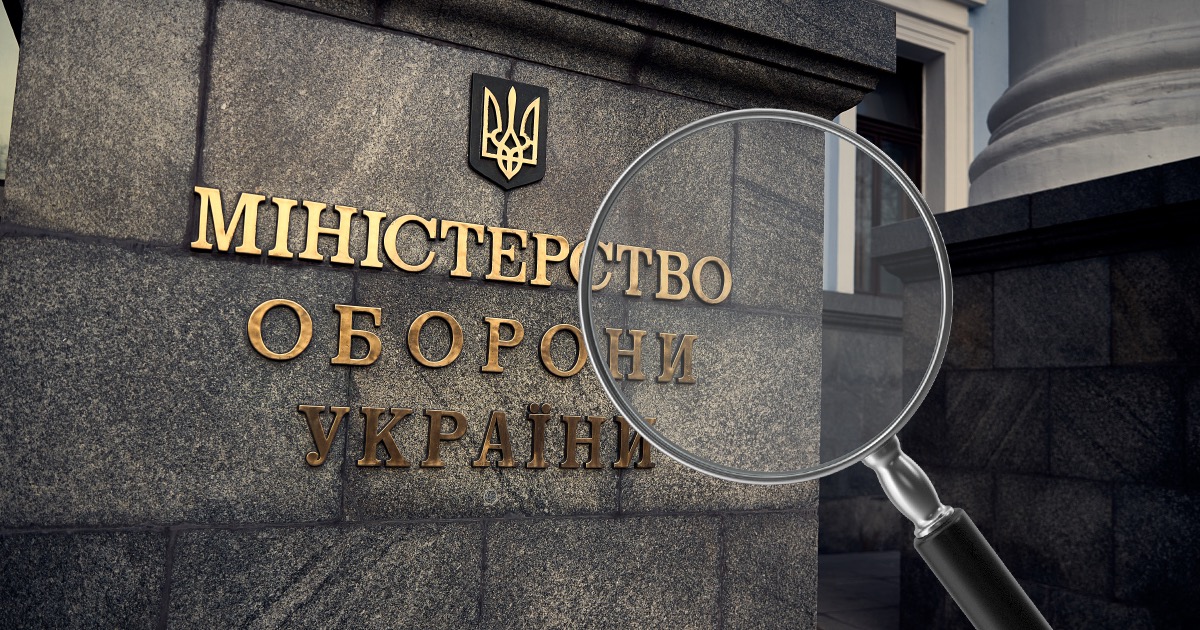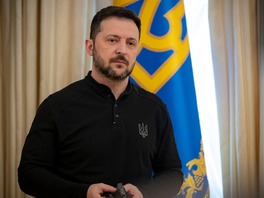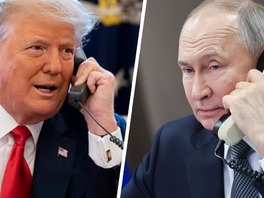In the dawn of the new year, Ukraine faces a high-profile defense procurement scandal. On the initiative of the State Bureau of Investigation, the property of the family of the Lviv businessman Ihor Hrynkevych, who is one of the largest suppliers of the Ministry of Defense, and his companies was seized. Apostrophe investigated what is happening with procurement at the Ministry of Defense and when it can be put in order there.
А week to withdraw assets
On December 29, Ihor Hrynkevych was apprehended for attempting a $500,000 bribe to a State Bureau of Investigation official. Subsequently, on January 11, the SBI disclosed the seizure of assets belonging to Hrynkevych's family and his affiliated companies.
SBI reveals 23 contracts, valued at over 1.5 billion hryvnias ($40 million), involving companies under scrutiny. Six contracts remain unmet, seven deliveredto military unitswarehouses insufficient goods yet received full state funds, and eight faced delays of 3 to 5 months. Cumulative losses reach 1.2 billion hryvnias ($31.7 million).On one hand, it іs positive that law enforcement addresses such cases. On the other hand, questions arise about the systematic nature of these efforts.
`In my view, there are indications of selective justice as numerous major suppliers to the Ministry of Defense, handling larger contracts, escape the scrutiny of the SBI. Notable examples, such as Tetyana Hlynyana, with substantial contracts and investments in a significant number of Croatian hotels, remain untouched by asset seizure claims,’ Yuriy Nikolov, the editor of the publication Our Money, tells Apostrophe.
Previously, media reports circulated suggesting Tetyana Hlynyana's role as a Ministry of Defense food supplier, coupled with her recent acquisition of mini-hotels in Croatia. While the article hinted at a potential link between the hotel purchase and state contract income, no concrete evidence was presented. However, it was noted that one of Нlynyana's companies was involved in selling eggs at 17 hryvnias per item ($0.45), significantly above the market rate of 7 hryvnias per item ($0.18) in supermarkets. This development ultimately led to the resignation of then-Defense Minister Oleksiy Reznikov.
War veteran, public activist, lawyer Oleh Simoroz draws attention to one more detail:
‘The Hrynkevychs had over a week to dispose of their assets freely following the arrest of their leader, Hrynkevych Sr. They were evidently aware of their central role as beneficiaries of companies contracting with the Ministry of Defense. I harbor no doubt that account and property maneuvers were undertaken to preemptively shield assets from potential seizure. While I appreciate the SBI's action in seizing the property of the Hrynkevych family, questions persist’.
It is also noteworthy that Hrynkevych Senior has yet to be designated as a suspect in the case concerning the supply of goods to the Armed Forces. The SBI provides justifications for this matter.
‘However, this does not imply that we will not learn about the suspect's status in the coming days. Broadcasting on social media is much simpler than legally proving an individual's involvement in a particular crime,’ -Tetyana Sapyan, Communications Adviser of the SBI, comments to Radio Svoboda.
No ‘black lists’
On January 9, the Ministry of Defense canceled contracts with Hrynkevych's firms, initiating comprehensive independent audits of tenders, contracts, and service quality. The rhetorical question arises: Can such schemes be executed without influential backers within government offices?
‘The issue persists as certain contracts with them are still being honored. The absence of a legal mechanism to terminate existing contracts without violations means they continue despite the scandal surrounding other agreements,’ Olena Trehub, a member of the Public Anti-Corruption Council under the Ministry of Defense, executive director of the NGO Independent Anti-Corruption Commission, explains to Apostrophe.
Established in March of the previous year, the Public Anti-Corruption Council under the Ministry of Defense was a response to the scandal surrounding the procurement of eggs for UAH 17. Council members, which include public activists and journalists, play a role in monitoring new contracts and form part of the collegial body overseeing them—the Defense Procurement Commission of the Ministry of Defense.
The Public Council acknowledges the rationale behind companies with reputations like Hrynkevych or Ms. Hlynyana consistently securing contracts from the Ministry of Defense. They commit to addressing this issue in the immediate future.
‘We believed the Ministry of Defense should establish a filtering mechanism for contract signatories, distinguishing between acceptable and unacceptable criteria. For instance, in Ukraine, criminal cases are easily initiated, making it an insufficient reason for blacklisting a supplier. On the other hand, criteria such as failure to meet delivery deadlines, as seen in the Hrynkevyhs' case, should be decisive. Ideally, the Hrynkevychs would already be on the blacklist. These are crucial risk indicators for buyers, but they have not been formally implemented,’ Trehub explains.
Procurement agencies, like the recently established ‘State Rear Operator,’ plan to incorporate risk indicators such as prior contract non-fulfillment. Launched in November, this state-owned enterprise manages all army supplies, excluding weapons. Led by Arsen Zhumadilov, formerly at ‘Medical Procurement of Ukraine,’ the agency conducts market analysis, price evaluation, supplier communication, and performance analysis.
‘The Ministry of Defense has established a fresh procurement unit to execute new procedures for acquiring non-military items like clothing and food. While these procurements are in their early stages, it is evident that the disorder witnessed in the Reznikov ministry is unlikely to recur,’ Nikolov suggests.
The rear operator first went to auction only on December 23 last year and is gradually taking purchases from the ministries.
‘They had a set timeframe, but it experienced delays. Initially planned for fall, the agency's procurement activities were pushed to the end of winter. Now operational, they aim to ramp up purchase volumes. Over the next year, by summer 2024, the ministry's procurement department is expected to decrease monthly purchases, while the Zhumadilov’s Agency will increase its role. Subsequently, reforms are to extend deeper, affecting military units,’ Trehub explains.
How to solve problems in the Ministry of Defense?
Another state enterprise ‘Defense Procurement Agency’ deals with the procurement of weapons. Since August 2022, it was headed by Volodymyr Pikuzo, but it did not show significant achievements. His tenure was marked by questionable decisions, such as a $19.8 million payment for subpar repair of 155 mm M109 howitzers from an American contractor, but the repair turned out to be of poor quality, and the claim process is still ongoing. ikuzo also neglected requests from public anti-corruption bodies, failing to respond to inquiries from the Public Anti-Corruption Council and abstaining from meetings with council representatives throughout his term.
After the new year, there were staffing changes in the agency. On January 3, the former agency head, Volodymyr Pikuzo, was reassigned as deputy, with financial director Oksana Schybrya temporarily performs the duties of the head.
As per Olena Trehub, there's a likelihood that Maryna Bezrukova, a Ukrenergo board member, could assume leadership of the agency soon.
‘In our role on the anti-corruption council, we have observed instances where tenders are announced, with 3-4 suppliers bidding, yet upon scrutiny, none are deemed trustworthy. This underscores the need for a comprehensive reform in defense procurement, clearing the market of longstanding suppliers associated with the Ministry of Defense,’ Trehub complains.
Alternatively, for a systemic resolution of the issue, changes are required not only within the Ministry of Defense but across the broader system.
‘We require concrete rulings in individual cases, as there's ample discussion about change. Consider the case of the 17 hryvnias eggs – where does it stand a year after the scandal? This issue encapsulates the challenge. While having a leadership committed to preventing corruption is commendable, the sheer size of the ministry and the rapid money flows make it impossible to monitor everything. Hence, the effectiveness of law enforcement agencies becomes crucial, and unfortunately, I believe there is a significant lapse in this regard,’ Taras Zahorodniy, managing partner of the National Anti-Crisis Group, summarizes.





